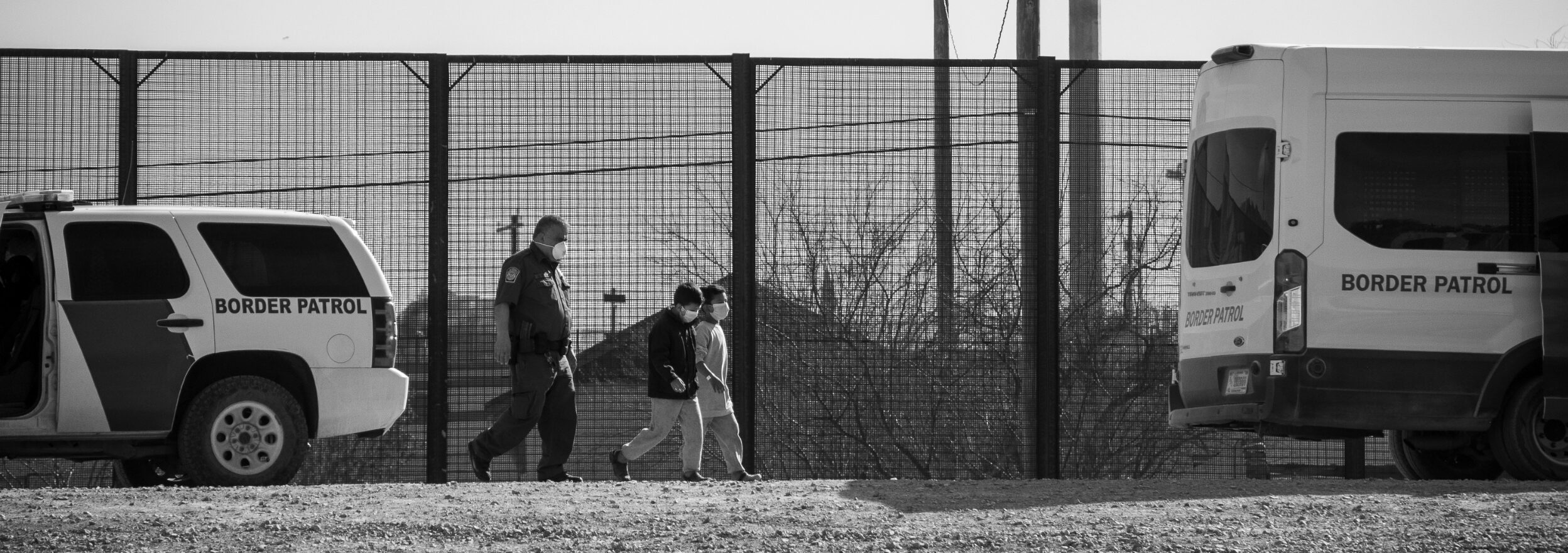
Supreme Court Lifts Temporary Block on Trump’s Use of Alien Enemies Act to Deport Immigrants, Clears Path to Further Challenges
The U.S. Supreme Court tonight granted the Trump administration’s request to lift the temporary restraining order (TRO) issued in a case addressing President Trump’s invocation of the Alien Enemies Act (AEA), but underlined that people targeted for removal under the act are entitled to challenge it, including the interpretation and constitutionality of the act.
Background
Democracy Forward, the American Civil Liberties Union (ACLU), and the ACLU of the District of Columbia filed a landmark legal challenge to stop the Trump administration from unlawfully invoking the Alien Enemies Act—a rarely used 18th-century wartime law—to justify mass deportations without due process.
The Alien Enemies Act, passed in 1798, permits the president to detain and remove nationals of an enemy nation only during a “declared war,” “invasion,” or “predatory incursion” against the United States. The statute has a deeply troubling history: it was used during World War II to justify the internment of Japanese Americans and has since become synonymous with some of the nation’s most shameful civil liberties violations. It has never before been used during peacetime—and never in this manner.
On March 15, 2025, amid growing reports that the Trump administration planned to rely on this law to carry out mass removals, we filed suit in federal court, arguing that President Trump’s anticipated use of the Alien Enemies Act was not only unprecedented and dangerous but flatly illegal. The United States was not at war, had not been invaded, and faced no predatory incursion. Therefore, the law did not apply. More importantly, the administration was seeking to use it to bypass established immigration laws and protections, sending people—many of whom had deep ties to their communities and no criminal background—to secret foreign detention facilities without a hearing, notice, or legal review.
The same day the case was filed, the administration issued a public proclamation formally invoking the Alien Enemies Act. In rapid response, the federal district court granted a temporary restraining order (TRO), halting the removal of the named plaintiffs to a prison in El Salvador. That evening, at an emergency hearing, the court broadened the TRO to apply to all individuals at risk of removal under the proclamation and granted preliminary class certification.
This decision specifically ordered the government to stop the takeoff of any deportation planes, and to turn back the ones that were already in the air. However, the Trump administration did not comply with this order.
Despite this early court victory, the administration sought to overturn the TRO. On March 26, the D.C. Circuit Court of Appeals denied the government’s request, upholding the protection against removals and affirming that individuals facing deportation under the Alien Enemies Act must be afforded due process. The ruling acknowledged that the administration’s actions posed a serious threat to core civil liberties.
The government then escalated its request to the Supreme Court. On April 7, the Court ruled 5–4 to lift the TRO—not on the legality of the administration’s actions, but solely on procedural grounds, concluding the case was filed in the wrong venue. Crucially, the Court reaffirmed that people targeted under the Alien Enemies Act must be given notice and an opportunity to challenge their removal, including arguments over the law’s constitutionality and application.
The case revealed disturbing facts: many of the individuals already deported under the Act had no ties to gangs or criminal activity, despite government claims. Some were targeted solely based on tattoos or unfounded suspicions. The administration’s use of this centuries-old statute to conduct mass removals—outside of immigration law, with no hearings or judicial review—represented an authoritarian power grab that posed grave threats to civil rights and the rule of law.
Timeline
March 15, 2025
Lawsuit Filed: Democracy Forward, the ACLU, and the ACLU of the District of Columbia file J.G.G. v. Trump in federal district court, challenging the Trump administration’s expected use of the Alien Enemies Act to remove noncitizens from the U.S.
TRO Granted: A federal district judge issues a temporary restraining order blocking the removal of the named plaintiffs under the Act.
TRO Expanded: Following an emergency hearing later that day, the court broadens the TRO to apply to all individuals at risk of removal under the Act and grants preliminary class certification.
Presidential Proclamation Issued: The administration publishes President Trump’s formal invocation of the Alien Enemies Act (retroactively dated March 14).
March 17, 2025
Initial Merits Hearing: A federal court in D.C. holds an in-person hearing to evaluate the underlying legal claims brought in the case.
March 26, 2025
Appeals Court Ruling: The U.S. Court of Appeals for the D.C. Circuit denies the Trump administration’s request to lift the TRO, keeping in place protections for class members at risk of removal.
March 28, 2025
SCOTUS Brief Filed: The government filed a brief at the U.S. Supreme Court asking to dissolve the TRO.
April 7, 2025
SCOTUS Decision: In a 5–4 ruling, the U.S. Supreme Court lifts the TRO on venue grounds (finding the case was filed in the wrong district). However, the Court reaffirms that individuals removed under the Alien Enemies Act are entitled to due process, notice, and judicial review of the Act’s constitutionality and application.
The case is still in development, and the parties will keep arguing their positions in court.
Case: J.G.G. et al v. Trump et al.